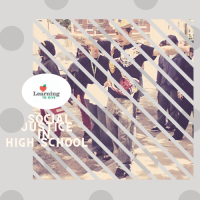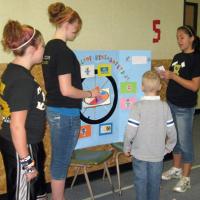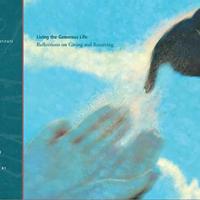This resource guide was designed by a Detroit-area educator with the goal of raising awareness of social justice and our role as citizens of a diverse country. The resource includes video, literature guides, discussion starters, activities, and lessons intended to empower youth voice and guide them to a service project of capturing someone's story through an audio recording and sharing it with others.
In civil society, different people come together to form community. While differences may cause conflict, for the sake of the common good, we practice empathy and respect for others. Students respond to scenarios of differences in opinion. They learn to communicate respectfully with someone of a different opinion and to seek common ground or compromise. The lesson concludes with a service project in which the students create posters to teach these methods to the school or community.
- Read more about Resolving Conflict with Respect MS
- Log in or register to post comments
Authored by JoAnna Ness
Definition
Youth service organizations exist to promote social change through...
In civil society, different people come together to form community. While differences may cause conflict, for the sake of the common good, we practice empathy and respect for others. We use literature to talk about how people from different perspectives see the same thing. We discuss how to communicate respectfully with someone of a different opinion and to seek common ground or compromise. The service project is to create posters that bring people together.
- Read more about Resolving Conflict with Respect - Elem
- Log in or register to post comments
Teach traits such as responsibility, fairness, and integrity through 20-minute creative lesson plans that provoke conversation and reflection. These character education mini-units, created by teachers for middle school classrooms, contain critical thinking, group interaction, and application of philanthropic principles while students explore nine different character traits. Great for a year of Advisory!
In collaboration with the Fetzer Institute's Generosity of Spirit project team, Learning to Give brings you access to stories from all over the world that speak of the gifts and challenges of leading a generous life.
This collection of world myths and folktales (linked below) is accompanied by lesson plans at the high school level and a reflection guide for teachers, parents, and youth leaders.
Definition
The French term noblesse oblige translates to "nobility obligates," meaning that with great wealth comes the responsibility to give back to those who...
Definition
Civic virtue is morality or a standard of righteous behavior in relationship to a citizen's involvement in society. An individual may exhibit civic virtue by voting, volunteering,...
Students read and analyze different leadership types and then create a visual presentation about a "servant leader" who puts the needs of those served first. They may explore the rich Our State of Generosity website to read about philanthropic servant leaders in Michigan.
- Read more about Leadership Lessons
- Log in or register to post comments
Students edit their memoir drafts, adding dialogue and figurative language in this guided writing session. This lesson will help students realize that struggles they experience in their lives often lead to a new understanding or lesson learned. Students will reflect on how their experience impacts others. They will use this realization to identify how they can address needs in their own community.
- Read more about Helping Others Overcome
- Log in or register to post comments


